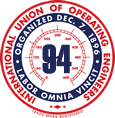Listen to Your Heart
Some medical needs are easy to spot. If you gash your hand or start sneezing, it’s time to go to the doctor. Preventive care is important because it addresses long-term medical issues you might not know you have.
One example is coronary artery disease—the leading cause of death in the United States. Over time, cholesterol builds up in your arteries and decreases the blood flow to your heart. With a heart-conscious diet and exercise, symptoms can improve. Leaving your heart alone, however, leads to a higher risk of stroke and heart attack.
The most common signs of coronary artery disease are:
- Chest pain
- Shortness of breath
- Light-headedness
Positive lifestyle changes decrease your risk of coronary artery disease. To limit your risk, choose foods low in fat, sodium and cholesterol, and eat plenty of vegetables. Cardio-intensive exercise, such as running or jogging, should be on your schedule at least three times per week. And, as always, quit smoking.
Sometimes, care can’t wait. If you experience chest pain for more than five minutes, seek emergency care IMMEDIATELY and call 9-1-1. The symptoms could be signs of a heart attack.
FAQs
When is my employer required to begin submitting contributions on my behalf?
Any and all hours paid for any work covered by a collective bargaining agreement must be reported. Please call the Union Office at (212) 331-1800. You can also visit the Contact Us page for more information.



